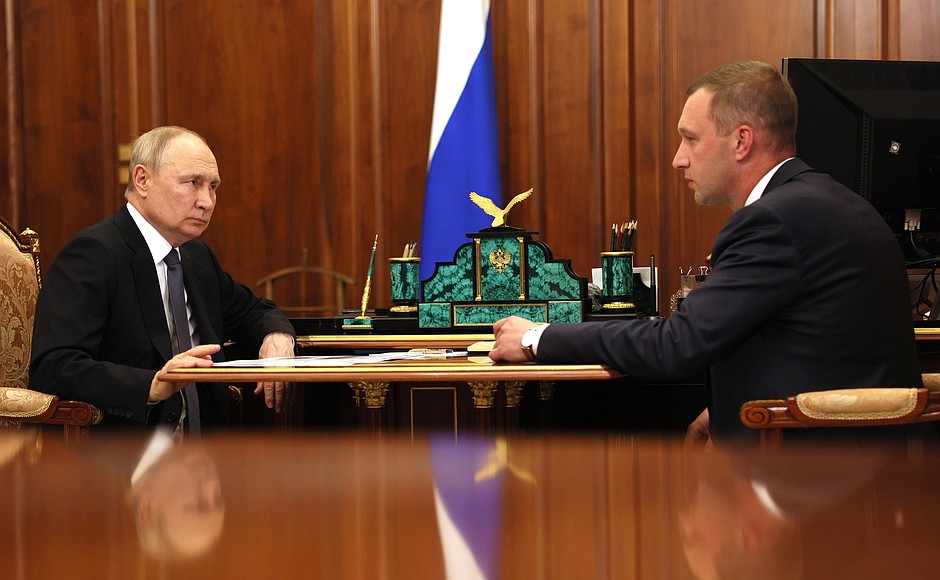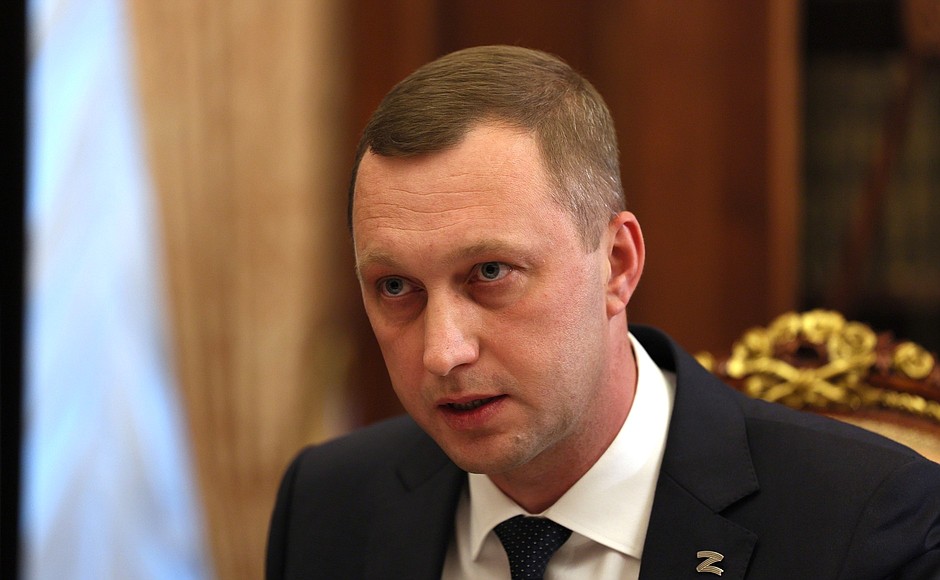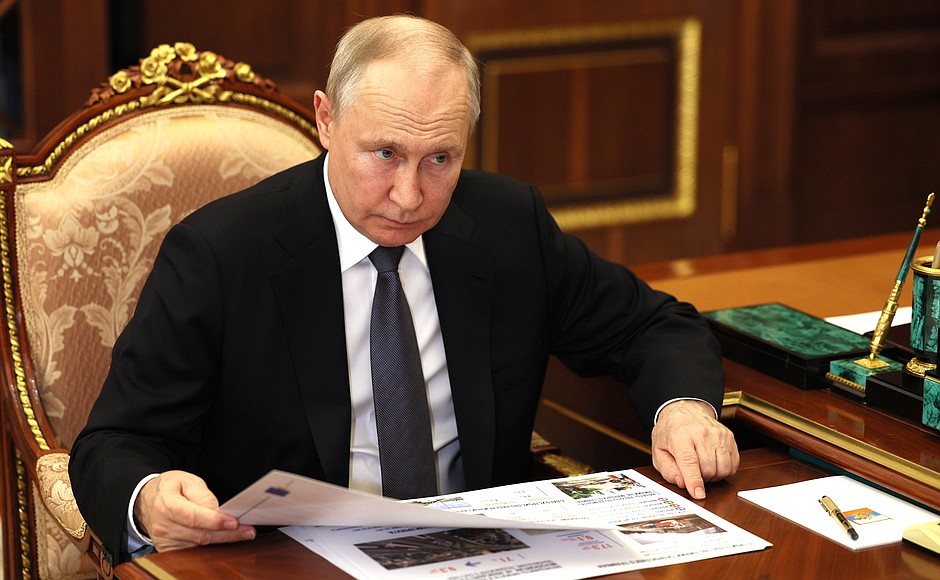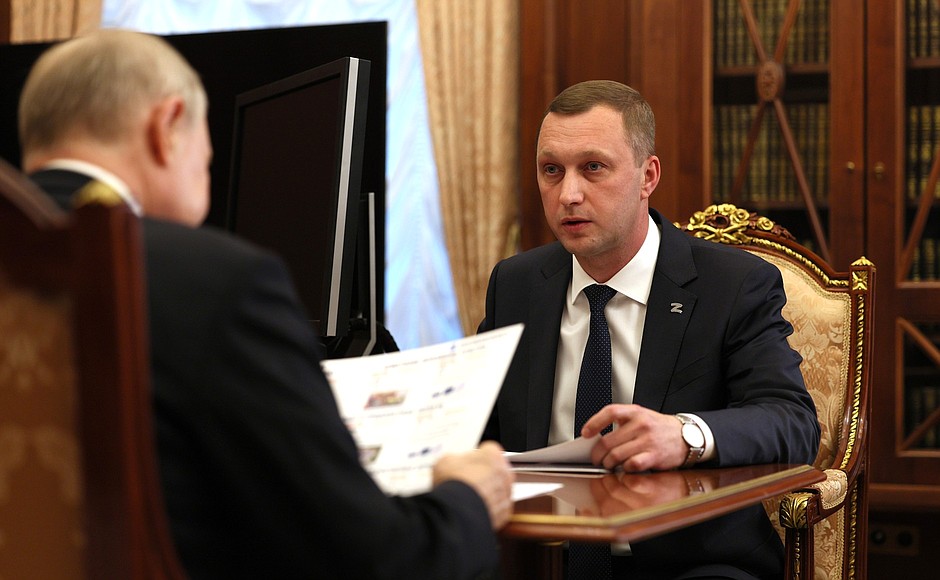Roman Busargin reported that in 2022, the local agricultural industry showed rather good results. The region became the fifth largest in terms of gross production and the largest in terms of sunflower production. The industrial production index reached 103.5 percent in the first quarter of this year. Fixed investment has grown. The Saratov Region produces almost 16 percent of sulphuric acid and 12.5 percent of fertilisers in the Russian Federation. Last year, the region managed to substitute 37 types of imported products, including 12 in aviation and radio-electronics. The defence industry plays a key role here.
The Governor asked for the President’s support in building a federal centre for unmanned aviation systems in Saratov, in view of the fact that 33 out of 74 defence companies are involved in the production of radio-electronic device and aviation systems. The region has a network of specialised departments at higher education institutions that train future professionals in radio-electronics, physics and chemistry.
The Governor reported that the region participates in 12 national projects initiated by the President. He specifically noted the Healthcare project. Two medical centres are under construction in the region, a cancer detection centre for 200 patients with an outpatient clinic providing 300 appointments per day, and a tuberculosis dispensary that can accommodate up to 453 patients. Five outpatient clinics are under construction as per the primary healthcare programme.
The Governor briefly reported on the results in other areas. In 2022, the regional officials ensured that 77 percent of children aged 5 to 18 attended extracurricular activities. The goal for this year is to encourage at least 53 percent of the population to do sports on a regular basis. Also, 653 kilometres of regional roads were repaired. It is expected that this year, 7,500 people will be relocated from 202 dilapidated blocks of flats under the corresponding programme. The region’s additional request for 6 billion rubles has been approved, meaning 5,500 more people will be relocated from 174 buildings.
The discussion also touched upon major projects in the Saratov Region. These include a bridge across the Volga River that will complete a bypass route around the Saratov metropolitan area. The design stage is already in progress, and construction works will begin this year. A local metallurgical cluster is being created. The second phase of the iron and steel plant is being built in Balakovo. A data processing centre is in development by Sber; it is expected to become the largest in Europe.
The Governor specifically noted a socioeconomic project of huge importance for Saratov, the upgrading of express tramway. To date, as per the President’s decision concerning the use of funds from the National Welfare Fund, the region has received a corresponding grant: more than 17 billion rubles are being invested to upgrade 67 km of the tramway system. It is expected that over 9 million people will use the tram service every year, which will cut the use of personal vehicles by 30 percent.
Roman Busargin asked for the President’s support in replacing the trams as this stage was not included in the project. The current tram fleet is completely worn out.
Vladimir Putin promised to review the issues presented by the Governor.
Additionally, the Governor reported on the support available to families of the personnel taking part in the special military operation. The instructions concerning establishing a state support fund for special military operation veterans have been fulfilled. The region also provides 13 other types of support measures, including five categories for families with children.
The President noted the importance of upgrading kindergartens. The Governor admitted that schools and kindergartens in the region do need modernisation. He also reported that last year a programme was launched to allocate regional funding for these purposes – to upgrade 100 kindergartens and 100 schools. Twenty facilities were renovated last year. Eight are under renovation this year and there is a long list for next year. The kindergarten programme will continue. Mr Busargin promised to resolve this issue in the next four to five years.



